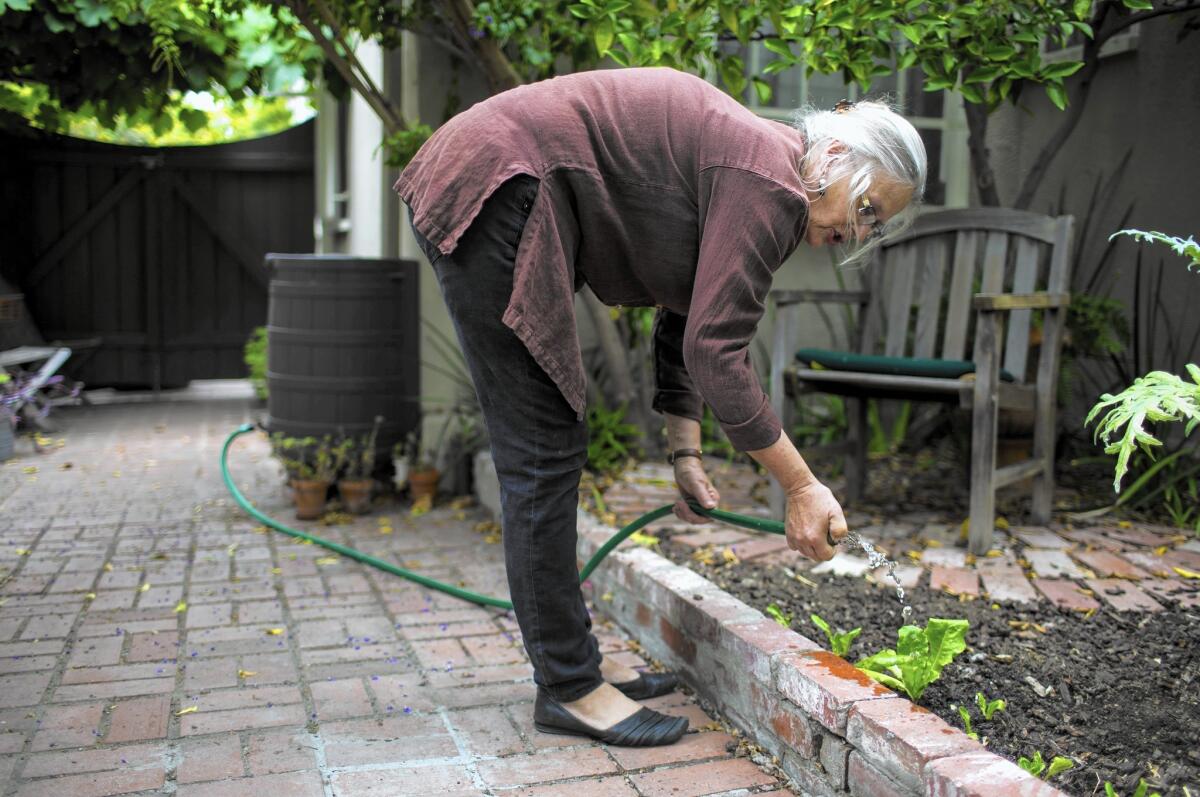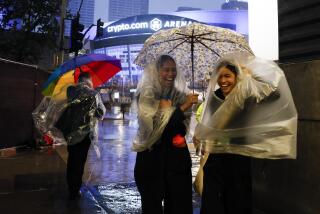When it comes to saving water, Southern Californians are tapped out — or are they?

- Share via
After months of responding to calls to save water, Southern Californians say they’ve hit a wall.
Nearly 9 in 10 respondents say they strongly or somewhat agree that “I’ve already cut back on water use at my home as much as I can” and “There’s not much more I can do to save water,” according to a recent survey commissioned by the Metropolitan Water District of Southern California.
A majority also said they are willing to decrease their consumption.
“They know what they’re doing [to conserve], and they believe it’s everything, but when you start giving them other ideas … they realize they’re not,” said Cynthia Kurtz, an MWD board member. “So drought fatigue, in a sense, means they’ve run out of ideas, and we need to keep reinforcing that there are other things they can do.”
Interest in the drought surged last spring after Gov. Jerry Brown imposed California’s first mandatory reduction in water use. Residents ripped out their lawns in record numbers and met the 25% mandate each month from June to September.
But recently, statewide water conservation has lagged. Californians failed to meet the 25% mandate in October, November and December, though the cumulative savings remain on target.
Many Southern Californians have hoped that a strong El Niño would bring above-average rains and relieve some of the pressure. So far, that hasn’t panned out, and rainfall in the region is still below average.
Water and Power is The Times’ guide to the drought. Sign up to get the free newsletter >>
The MWD hired EMC Research to conduct the survey, which measured people’s attitudes and awareness of the drought. The researchers called about 1,000 people within the MWD service area during two weeks in December and also conducted an online survey that 800 people took during the same period. A summary of the results was released Monday.
The survey found that 62% of respondents said they “strongly agree” that they had saved as much water as they could, while 26% “somewhat agree.”
Kurtz said the agency will use the survey results as a guide for how to adapt future outreach to changing attitudes.
One way to combat so-called drought fatigue, Kurtz said, is to express gratitude for the conservation efforts made so far.
“People get tired of being told they have to do more, they have to do more, so as part of that message, we also have to thank them for what they have done,” Kurtz said, “and then promptly push them to do more.”
Felicia Marcus, chairwoman of the State Water Resources Control Board, said she wasn’t disappointed by the results of the survey because Southern Californians have done well so far with saving water.
“I would think a significant chunk of those folks probably really have done a lot, and there may be others that probably don’t realize there’s more that they could do, so it’s an education and engagement challenge,” Marcus said.
Tracy Quinn, senior policy analyst at the Natural Resources Defense Council, agreed that there is an education gap and said it ought to be of concern if people think there is no more to be done to conserve water at home.
“It’s clear that there’s a lot more we could be doing,” Quinn said, adding that residents continue to use drinking water “outside at a level that isn’t really sustainable in this sort of new normal California climate.”
Quinn said respondents might have been focused on ways they have changed their behavior, rather than on more concrete steps such as replacing appliances with high-efficiency products.
“There’s no act too small,” Quinn said. “Every drop really does count in this drought emergency.”
Twitter: @taygoldenstein
Join the conversation on Facebook >>
ALSO
Southland sizzles with record-breaking heat
‘Zombie’ Target project in Hollywood may get new life from L.A. City Council
ICE agents won’t be going onto Los Angeles public school campuses
More to Read
Sign up for Essential California
The most important California stories and recommendations in your inbox every morning.
You may occasionally receive promotional content from the Los Angeles Times.











